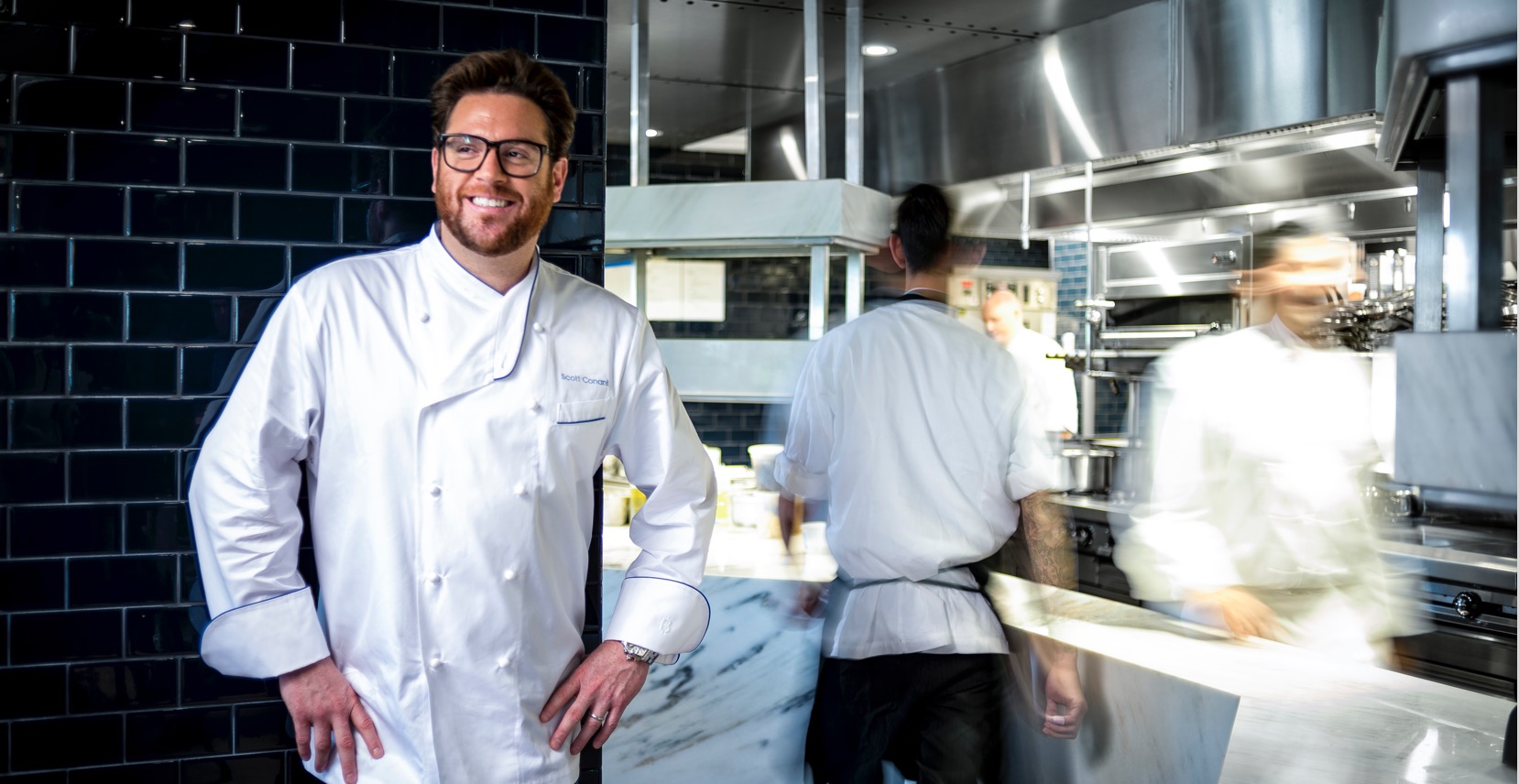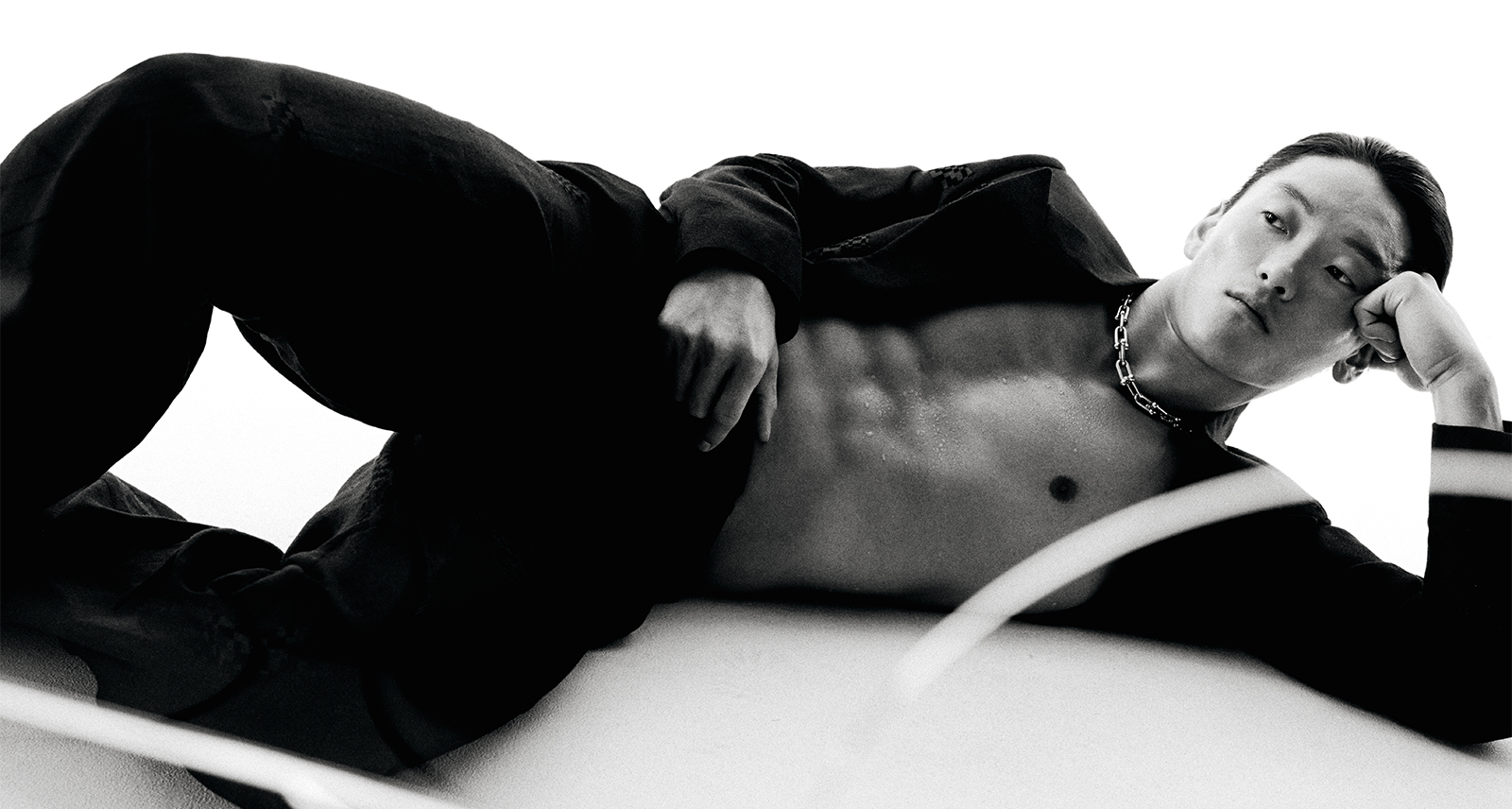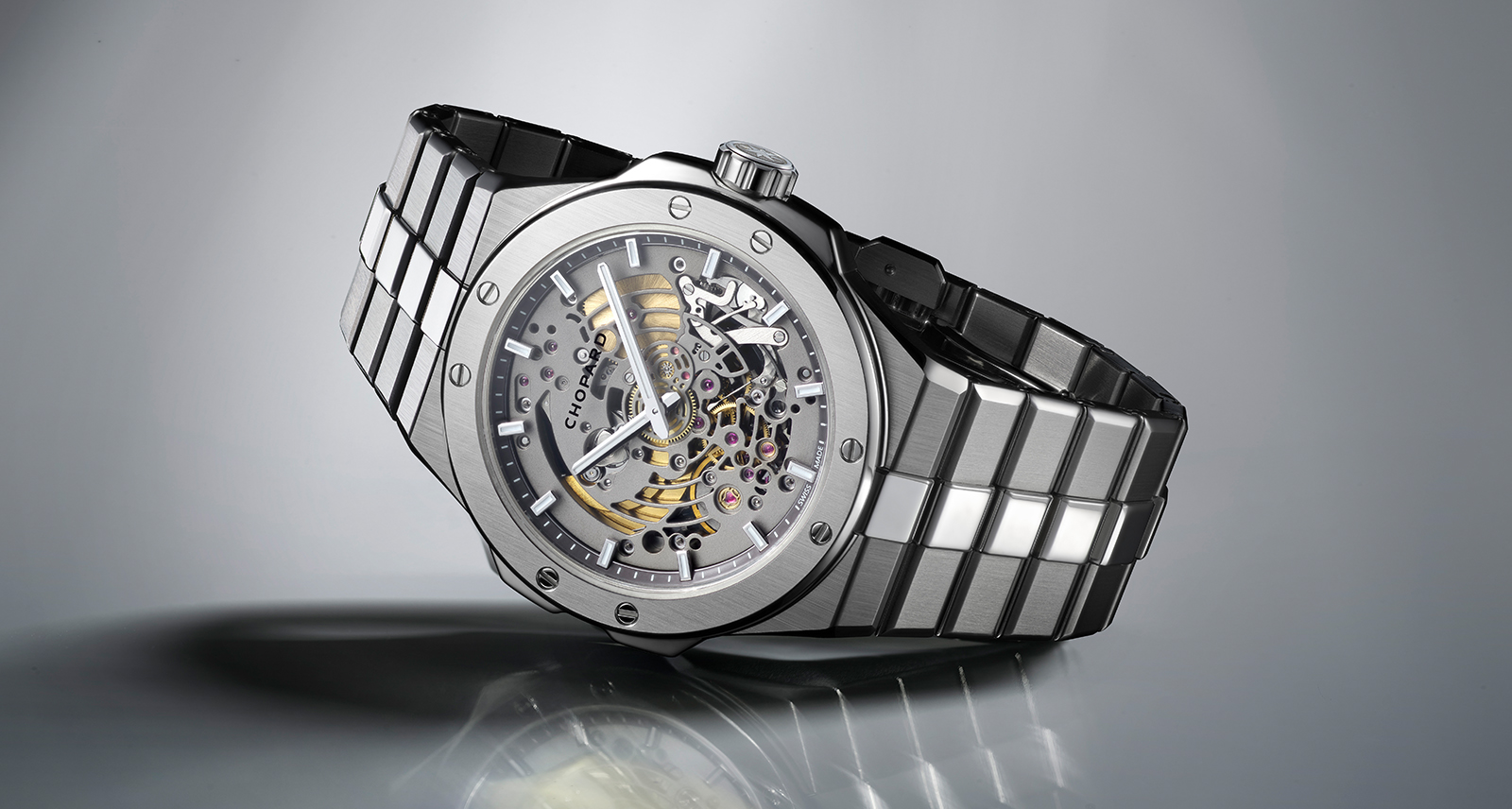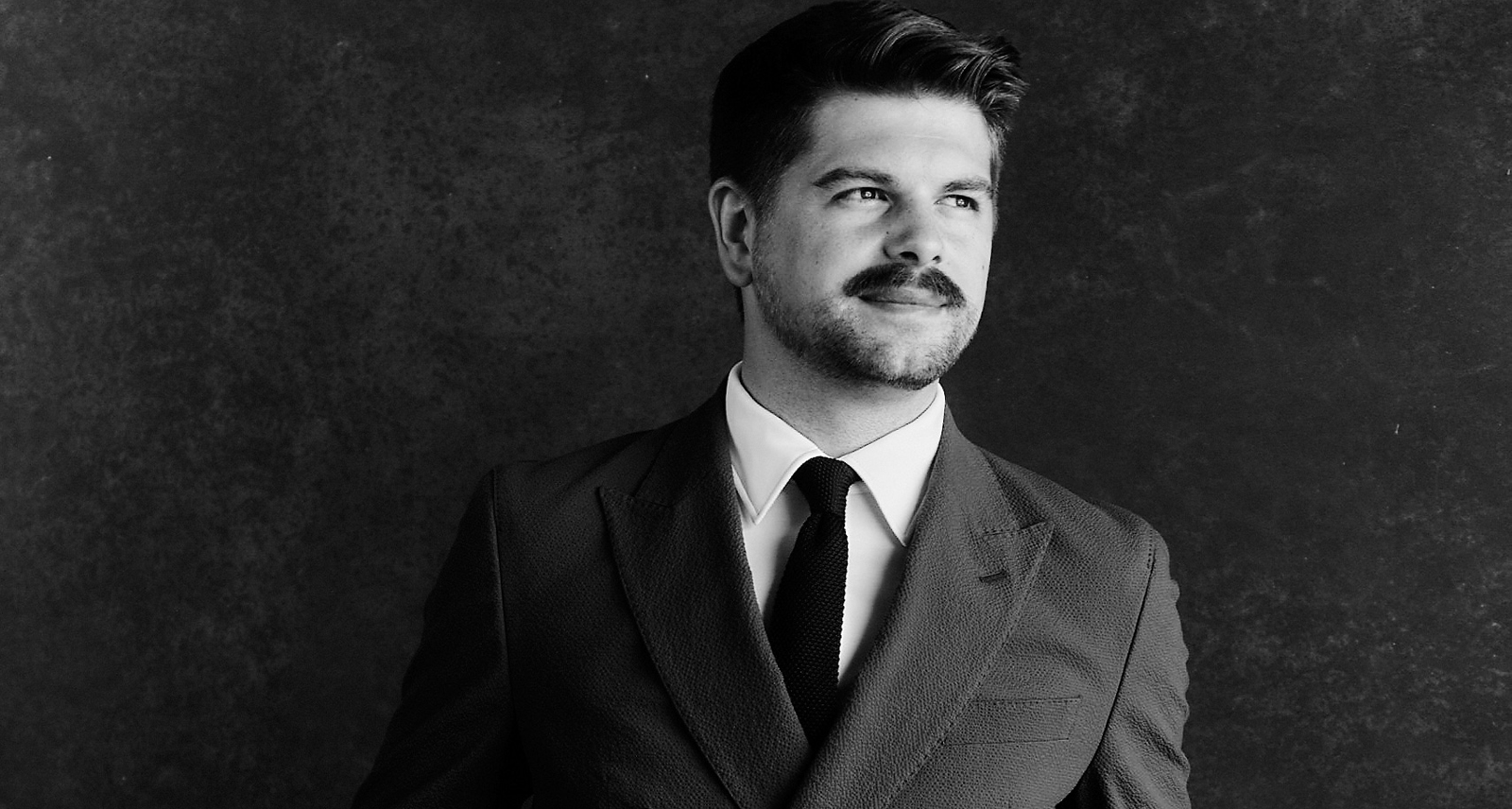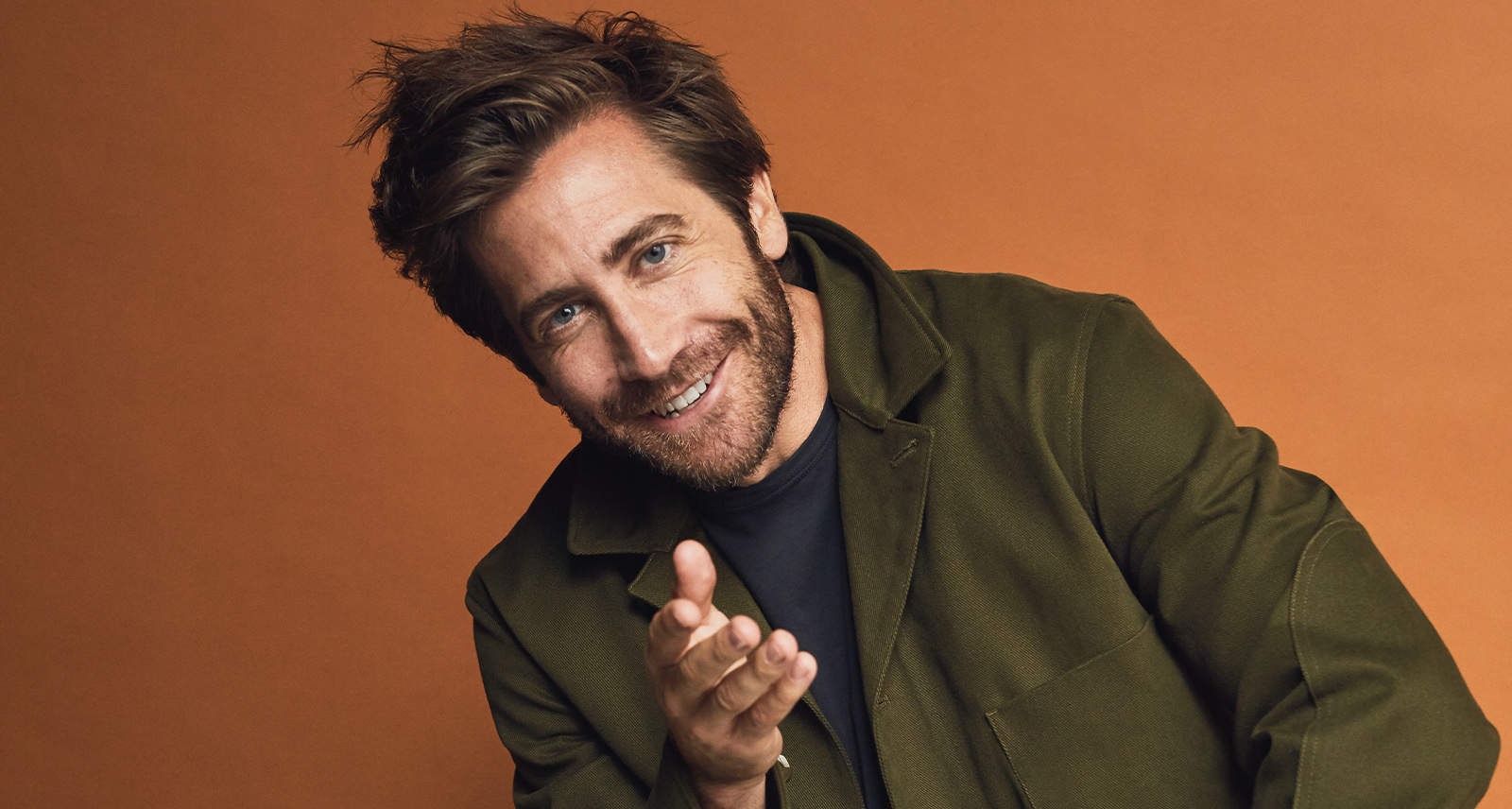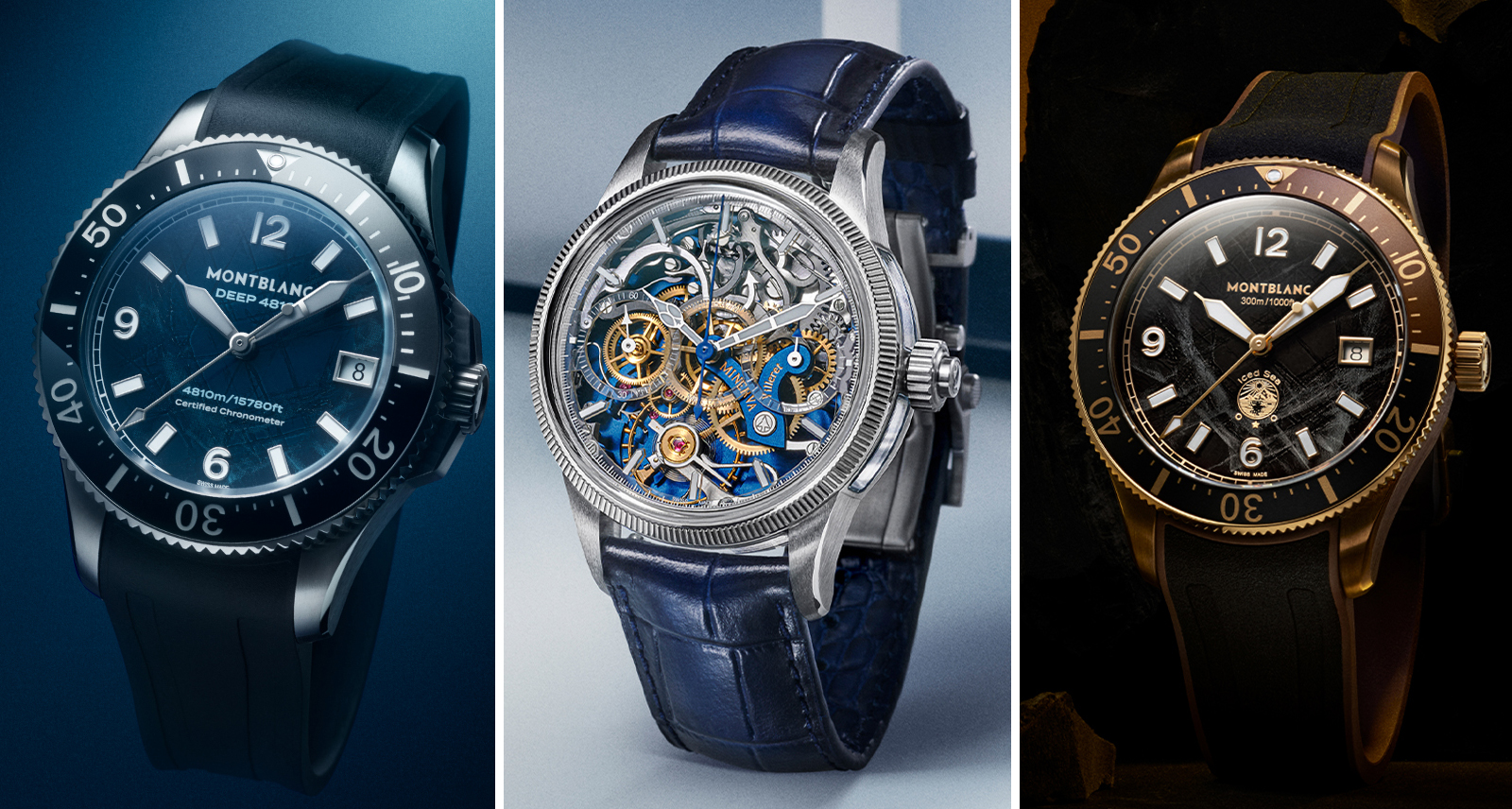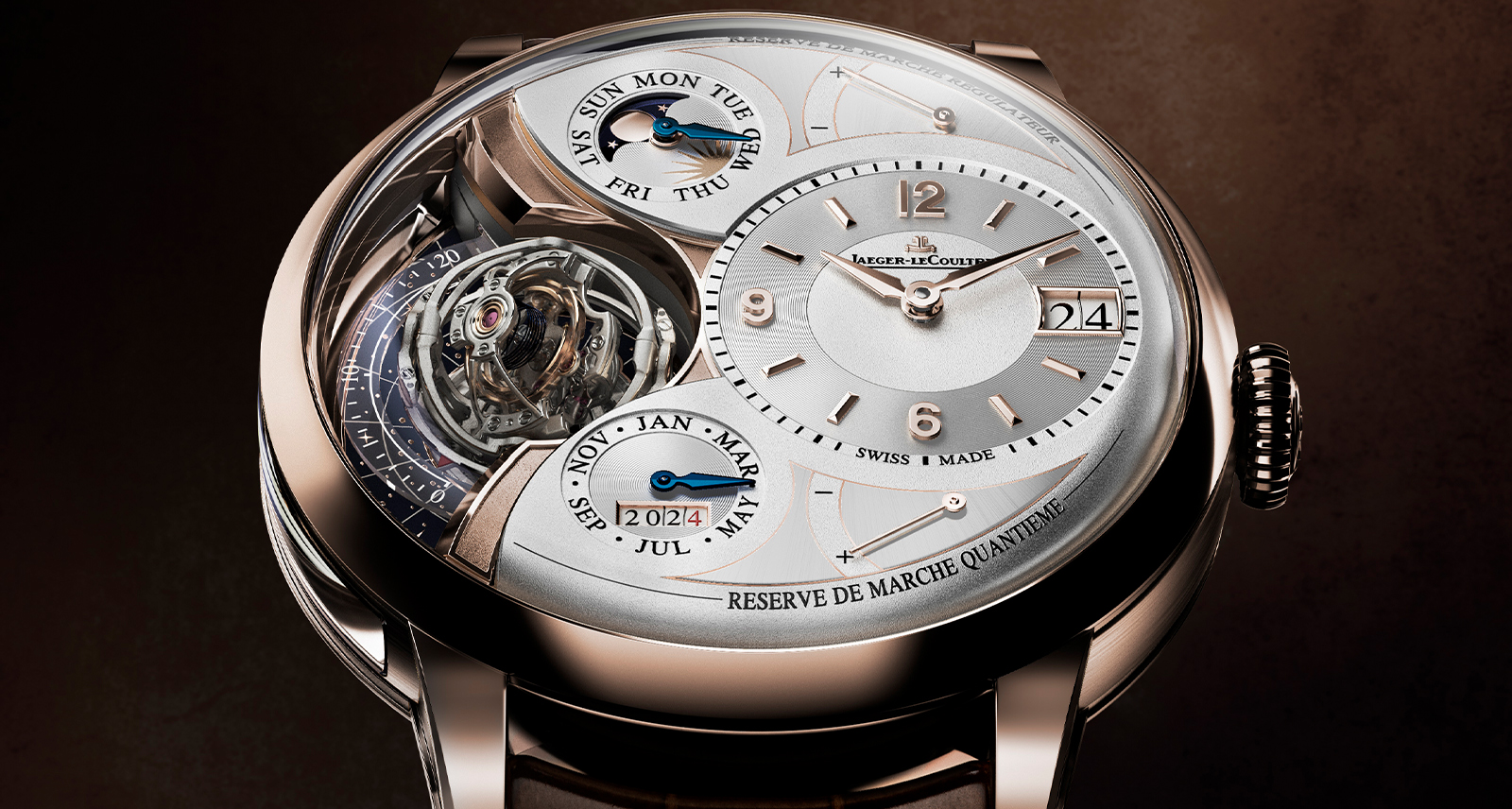TV Dinners: Scott Conant May Be a Star Chef, But He Keeps the Spotlight Directed At His Dishes
James Bread Award winner Scott Conant is a regular on television shows like Chopped and Top Chef — but don’t call him a celebrity. The 46-year-old Connecticut native started off like most chefs: drawing influence from his cultural background — in this case, the meals cooked by his Italian grandmother. After graduating from the Culinary Institute of America, he did stints cooking in New York and Munich. Then he returned to his roots, eating his way across Italy in a rental car and cementing his love of the country and its food. Upon returning to New York, he opened Scarpetta — the first in a string of highly acclaimed restaurants. We asked him to dish on recent culinary TV trends — and the kitchen tool he can’t live without.
Why was working in Europe an im- portant part of your training? Cooking with old-school chefs gave me a broader perspective. Back in the day, there was no glamour in this industry. Money was something you needed to get by — it wasn’t why we cooked. I started cooking strictly for the love of the game. In Italy, a chef I’d be working for would say, “I’ve got a friend in Puglia,” and then I’d spend my last dollars crossing the country to cook with him.
How has being a celebrity chef influenced your career?
Well, I never think of myself as a celebrity. I think of myself as a cook first and an entrepreneur second, but never as a celebrity. The way I look at it, television is simply an advertising platform. My real business is restaurants, and I work a lot to grow my company.
How has food television changed since the days of Julia Child?
The Food Network made culinary television and great chefs like Mario Batali and Bobby Flay a lot more mainstream. But everything is still in a constant state of change. Take, for instance, the rise of competition shows — which are really more personality based than food based. Another change is the rise of food personalities, who tend to be interviewers skilled at talking to people who cook, as opposed to chefs themselves.
Why are cooking shows so popular?
The feedback I get from people is that they’re the last form of family-friendly entertainment. People of all generations can sit together and watch. You don’t have to worry about explicit content or foul language. They’re wholesome.
A Michelin-starred chef once told me that diners are more critical now, due to social media. Do you agree?
I’m not sure it’s only social media. The access we have to food and restaurants is at an all-time high. There’s no hiding behind things. People see food on TV, social media, YouTube, and they want to engage with it, they want to experience it, one way or another.
What’s the most important piece of equipment for a chef?
I can’t work without a great spoon. I always have a Kunz spoon in my apron pocket. At a bigger scale than that, well, I have an Italian restaurant — so a pasta machine or an extruder.
What’s the most outrageous request you’ve ever received at a restaurant?
Somebody came in and wanted one of Eric Ripert’s dishes. I love Eric — he’s one of the best chefs in the world — but I’m not going to try to recreate his dish!
What’s your go-to late-night meal?
My waistline wishes it was an apple, but it’s a chicken cutlet on a hero, with lettuce, tomato, hot sauce, and plenty of mayonnaise. I could eat that every day of my life.
